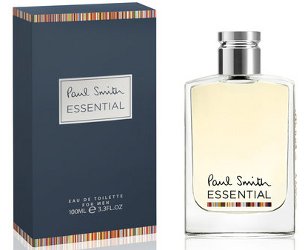
British fashion brand Paul Smith will launch Essential, a new woody aromatic fragrance for men, in September.
Essential was developed by prefumer Hamid Merati-Kashani. The notes include ozone accord, yuzu, rosemary, clary sage, lavender, orange blossom, cedar, patchouli and musk.
Paul Smith Essential will be available in 30, 50 and 100 ml Eau de Toilette.
(via leparisien.fr)
Question-even if the chemical firms manage to come up with a replacement which in the immediacy, smells identical to the banned/restricted natural substances, don’t the perfumes still lose a fullness because the synthetics can’t encompass all the nuances of the natural substance? I hope I’m asking this clearly.
Also-I have indeed seen for years, even as a perfume noobie, that oakmoss, etc were being replaced in perfumes, and that perfumes were being quietly reformulated even before the last big push. So, I had already begun to collect vintage bottles of the ones I already loved or was interested in. I felt that I would have to balance the loss of top notes, etc, in exchange for getting the full richness of the most long-lasting part of the smelling experience, the middle and base. So it’s still not exactly the same as having a bottle of that perfume fresh off the conveyor belt, so to speak, in all its natural, potentially rash-inducing glory, but for my purposes, it’s closer than buying a reformulation. I got so caught up in chasing good vintages that I can say with some satisfaction, that at my age, I will die before I can possibly use it all up. It feels good to know that I don’t have to ever buy any reformulated dreck, but I can now and then buy from some small perfumer who is still using the verboten ingredients in their products, when I choose to do so.
And I can leave what I haven’t used-carefully stored-to my nieces, who I may be doing a disservice by teaching them to appreciate what they will no longer be able to procure.
Hi mrsmel — Is this about Paul Smith Essential, or did you accidentally post it here? I feel like I’m missing the beginning of the conversation.
Very few natural substances have been banned, most have just been restricted to a percentage of the finished formula. What I’ve noticed over the past 10 years is that even “unbanned” materials rarely appear in their full glory anyway — patchouli and vetiver, for instance, are now usually molecular fractions, and this is to suit consumer preferences. So even without IFRA, perfumes are “thinner” than they used to be.